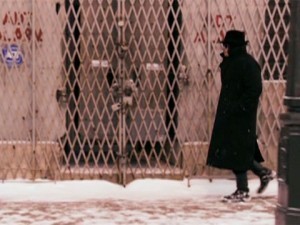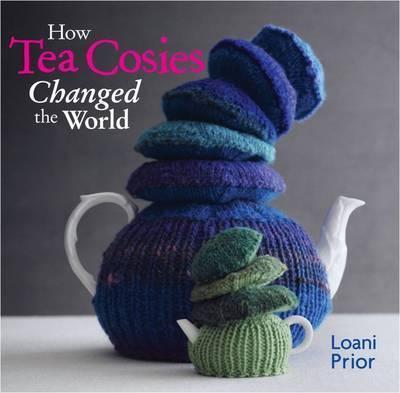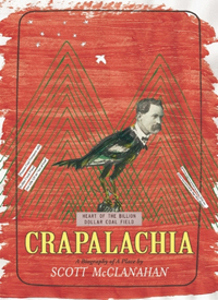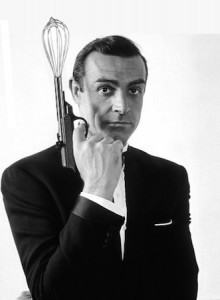The Paris Review's Blog, page 844
February 26, 2013
Sugar Rush: Letter from Cape Town
 Grand West Casino is decorated in the theme of “Cape Town’s Maritime Tradition.” A tradition which involves, for the most part, magenta skies painted on oppressively low ceilings, so that your subconscious incessantly implores you to hunch. At Grand West you may gamble or ice skate or play miniature golf or watch a show. We’ve arrived—my sister and I—for option four. I’ve option foured here a few times, most often with regret. South Africans have a certain obsequious gratitude when it comes to international acts (a holdover, I assume, from three decades of cultural boycotts), so that we now seem to provide palliative care for washed up music careers the world over, one rung above, or perhaps below, the cruise ship circuit. In the last few years we’ve offered our gushy services to Helmut Lotti, Belinda Carlisle, Gladys Knight, Roxette, and, incessantly, Michael Learns to Rock.
Grand West Casino is decorated in the theme of “Cape Town’s Maritime Tradition.” A tradition which involves, for the most part, magenta skies painted on oppressively low ceilings, so that your subconscious incessantly implores you to hunch. At Grand West you may gamble or ice skate or play miniature golf or watch a show. We’ve arrived—my sister and I—for option four. I’ve option foured here a few times, most often with regret. South Africans have a certain obsequious gratitude when it comes to international acts (a holdover, I assume, from three decades of cultural boycotts), so that we now seem to provide palliative care for washed up music careers the world over, one rung above, or perhaps below, the cruise ship circuit. In the last few years we’ve offered our gushy services to Helmut Lotti, Belinda Carlisle, Gladys Knight, Roxette, and, incessantly, Michael Learns to Rock.
But not tonight. Tonight isn’t the usual Southern Hemisphere rent-a-crowd. Quite the opposite. Because tonight we’re here for the grand reunion of the guru and his gurees: it’s Wednesday, February 20, and Rodriguez is on his first tour of South Africa since all the hullabaloo around Searching for Sugar Man. Letterman hullabaloo, Leno hullabaloo, iTunes hullabaloo, Oscars hullabaloo. They say the first audience at Sundance was laughing and sobbing and talking in tongues. What a story; what a man. Stoic. Poet. Prophet. Maybe a bit of an alcoholic, rumor has it, but who isn’t? I tell you, as a South African, to finally see him get international recognition ... it’s pretty irritating, actually. Read More »
Reading Rooms of Your Dreams, and Other News
From abandoned Wal-Marts to Venetian warrens, thirty places for book lovers. (N.b.: gaining access to number thirteen could be problematic.)
A Colorado library is experimenting with loaning out seeds as well as books.
Thomas Pynchon’s new novel, set in the pre-9/11 Manhattan tech sector, drops in September.
“Writing by hand is laborious, and that is why typewriters were invented. But I believe that the labor has virtue, because of its very physicality.” Mary Gordon extols the virtues of longhand.
Speaking of! Proust’s handwriting, while bad, offers moments of clarity, says Colm Tóibín: “The word homosexual, as it is written in his hand here, stands alone; it is very clearly written, each letter perfectly made and totally legible. There is a feeling as you look at it that it was a word Proust did not often write, or that perhaps he enjoyed writing, or that it was a term he now wanted to take his time over, and he needed Vallette to be able to see it clearly.”
February 25, 2013
Emergent
 It’s unsettling how some stories come around again. When I was eight, my mother and I were in our garage in Lubbock, Texas, when she suddenly yelled, “GO!” and shoved me through the door. I ran to my parents’ bedroom. Suddenly, my mother was there, shaking, muttering “No. Oh, no.” She called someone, asked for an ambulance, said there had been an accident. She told me to stay inside, to not look out the windows. Not long after, I heard sirens. And the sirens, it seemed, kept coming. It’s been more than thirty years since that moment, and the pieces of it in my memory are scattered, like shards of glass.
It’s unsettling how some stories come around again. When I was eight, my mother and I were in our garage in Lubbock, Texas, when she suddenly yelled, “GO!” and shoved me through the door. I ran to my parents’ bedroom. Suddenly, my mother was there, shaking, muttering “No. Oh, no.” She called someone, asked for an ambulance, said there had been an accident. She told me to stay inside, to not look out the windows. Not long after, I heard sirens. And the sirens, it seemed, kept coming. It’s been more than thirty years since that moment, and the pieces of it in my memory are scattered, like shards of glass.
***
I usually wake by ten o’clock on Sunday mornings, but this Sunday was different. From my bed, I could see through the hallway to the bathroom, where Indie, my nine-year-old daughter, was leaning over the black rug in the bathroom. She was sitting on her feet, her hands on her knees, as if she’d been running all night in her sleep and had woken in recovery mode. It was the end of October, and this was not the first time I had found her here, vomiting into the toilet. Her bobbed hair sticking up in the back, tousled, blonde. I asked if she needed me, hoped that she didn’t, because I was exhausted, my head tight, pounding, a hint I must have had too many glasses of chardonnay the night before.
We had only lived in the house since August, so Indie didn’t yet have a pediatrician. The week before, the pharmacist at the Price Chopper suggested Pedialyte, maybe Ensure if she didn’t start eating more. Fiber, he suggested. She’d be fine. Read More »
Filling the Silence: An Interview with Marie Chaix
 To call Marie Chaix’s work autobiographical would be incomplete, though most of her books tell and retell the stories of her life. Her writing is porous and breathes memory, attesting to memory’s transience and the impressions it leaves on the body.
To call Marie Chaix’s work autobiographical would be incomplete, though most of her books tell and retell the stories of her life. Her writing is porous and breathes memory, attesting to memory’s transience and the impressions it leaves on the body.
At the age of twenty-six, Chaix read the notebooks her father had kept during his ten years in prison following World War II. Unbeknownst to her family, he’d been the right-hand man of pro-German Fascist collaborator Jacques Doriot and had fought in the Wehrmacht beside him. This was a shock and became the topic of Chaix’s first book, The Laurels of Lake Constance. Like many of Chaix’s works, it hovers somewhere between memoir and fiction. In June, Dalkey Archive Press will publish The Summer of the Elder Tree, translated by Chaix’s husband, Harry Mathews. It concerns her ten-year hiatus from writing following the death of her editor and reincorporates many of the places she visited in The Laurels of Lake Constance and in her second book, Silences, or a Woman’s Life, which Dalkey published late last year.
Chaix spoke to me on the phone from her home in Key West.
As someone who writes a lot of autobiography, do you believe that a story is preexisting—that a writer’s job is to find it, retrieve it, and record it—or is there some invention in autobiography?
Well, I didn’t realize it before writing, but in general I discovered that, even if you have characters that you know very well—even if you write about yourself, about your “life,” your memories—the result is exactly the same as if it was fiction. I think that readers know that it’s autobiographical because writers care when it’s autobiographical, but they read it and think about themselves, which is what happened to me.
But I think writing doesn’t work like that, you know? Of course, you have a motive, you have yourself, you have your family. But they become completely—and even yourself—you become completely part of a larger world, a larger story. Read More »
James Bond’s Breakfast, and Other News
Well, this is depressing: for fiscal reasons, a Tennessee post office has taken to tossing books that get returned to sender. Hopefully Dolly Parton, whose charity is involved, will intervene and make everything right.
Ten “unfilmable” books, made into films of varying quality.
Meanwhile, Penguin has been toting up the Oscar wins on adaptations of their titles, all of which are discounted. (The Shakespeares seem like cheating.)
If all that was old news to you, perhaps we can interest you in a literary Oscars quiz?
“Meticulous breakfast prep often signals violent tendencies.” On James Bond’s prandial fussiness and breakfast as character indicator in fiction.
February 22, 2013
Happy Birthday, Edward Gorey
In honor of what would be the late Edward Gorey’s eighty-eighth birthday, we bring you a full series of his Gashlycrumb Tinies as GIFs.
The Joys of Yiddish Dictionaries
 One of the best things I’ve ordered on the Internet recently is a Yiddish translation of The Hobbit. After getting lost in the mail in the wake of Hurricane Sandy, it finally arrived: a medium-sized white-on-black paperback titled Der Hobit, with a dedication to the “workers and residents of the Newtonville Starbucks (my office).” The translator, Barry Goldstein, is a retired computer programmer, and reworking The Hobbit is only one of his hobbies. He is an arctic traveler who has taken several trips to Greenland, and he has rendered accounts of Shackleton’s voyages into Yiddish. He is also on the editorial team of a more momentous, if not quite as whimsical, project: the new Comprehensive Yiddish-English Dictionary, released in January by Indiana University Press. Now, thanks to Goldstein, I have the Yiddish Hobbit, and the means to read it.
One of the best things I’ve ordered on the Internet recently is a Yiddish translation of The Hobbit. After getting lost in the mail in the wake of Hurricane Sandy, it finally arrived: a medium-sized white-on-black paperback titled Der Hobit, with a dedication to the “workers and residents of the Newtonville Starbucks (my office).” The translator, Barry Goldstein, is a retired computer programmer, and reworking The Hobbit is only one of his hobbies. He is an arctic traveler who has taken several trips to Greenland, and he has rendered accounts of Shackleton’s voyages into Yiddish. He is also on the editorial team of a more momentous, if not quite as whimsical, project: the new Comprehensive Yiddish-English Dictionary, released in January by Indiana University Press. Now, thanks to Goldstein, I have the Yiddish Hobbit, and the means to read it.
A dictionary is meant to be a reflection of a language (or a prescription for it, depending on your view), but the Comprehensive Yiddish-English Dictionary reflects an entire culture. (In the interest of full disclosure, the dictionary received a grant from the Forward Association, which publishes the newspaper for which I work.) Unlike previous dictionaries, its audience is mainly English speakers, not Yiddish. It is aimed at readers of Yiddish literature (or Yiddish translations of children’s fantasy novels), rather than people who want to speak or write the language, though an English-Yiddish dictionary is also on the way. In the battle between descriptivism and prescriptivism it takes a middle path, erring on the side of the descriptive. Taken with its predecessors, it tells the story of Yiddish in America. Read More »
Weirdest Titles of the Year

Forget the Oscars: what we’re interested in is the Diagram Prize, which rewards the oddest title of the year. The shortlist follows; vote for your favorite before March 22 at We Love This Book.
Goblinproofing One’s Chicken Coop, by Reginald Bakeley
God’s Doodle: The Life and Times of the Penis, by Tom Hickman
How Tea Cosies Changed the World, by Loani Prior
How to Sharpen Pencils, by David Rees
Lofts of North America: Pigeon Lofts, by Jerry Gagne
Was Hitler Ill?, by Hans-Joachim Neumann and Henrik Eberle
What We’re Loving: Crapalachia, Welty, Animalia
 Though the book doesn’t come out until the middle of next month, I can’t wait until then to say how much I liked Scott McClanahan’s Crapalachia. It’s about his youth in rural West Virginia, where he spent his formative years under the influence of his Grandma Ruby and Uncle Nathan, who suffered from cerebral palsy. The book is subtitled “a biography of a place,” but it’s more a biography of a handful of people, and Ruby and Nathan are easily its star characters: beguiling in their weirdness and utterly charming in their deep affection for each other and for Scott. His voice is wholly unaffected, and his account manages to be both comic and unpretentiously sentimental. —Nicole Rudick
Though the book doesn’t come out until the middle of next month, I can’t wait until then to say how much I liked Scott McClanahan’s Crapalachia. It’s about his youth in rural West Virginia, where he spent his formative years under the influence of his Grandma Ruby and Uncle Nathan, who suffered from cerebral palsy. The book is subtitled “a biography of a place,” but it’s more a biography of a handful of people, and Ruby and Nathan are easily its star characters: beguiling in their weirdness and utterly charming in their deep affection for each other and for Scott. His voice is wholly unaffected, and his account manages to be both comic and unpretentiously sentimental. —Nicole Rudick
My worst reading habit is not reading too fast, or too slow, or stopping books in the middle, or right before the end (though I do all of those things). It’s my persistent impulse to read books that reflect my mood—an impulse that, if indulged often, reduces my reading list to a positively uncatholic range of authors and subjects. But one recent evening, my initial, “safe” pick (James’s The Golden Bowl) was thwarted by Geneviève Castrée’s Susceptible, which, when spotted in a pile of neglected books, looked too intriguing to let alone. An autobiographical comic, the work is less like an illustrated diary and more like a scrapbook; it shows rather than tells, pasting together a series of vignettes to build a narrative of the author’s troubled early life. Castrée’s beautifully toned black-and-white drawings even read more like vintage photographs than they do sketches. The book’s pervasive melancholy is still lingering with me, a reminder of why we really read: to feel things besides our own emotions. —Clare Fentress Read More »
The Paris Review's Blog
- The Paris Review's profile
- 305 followers






